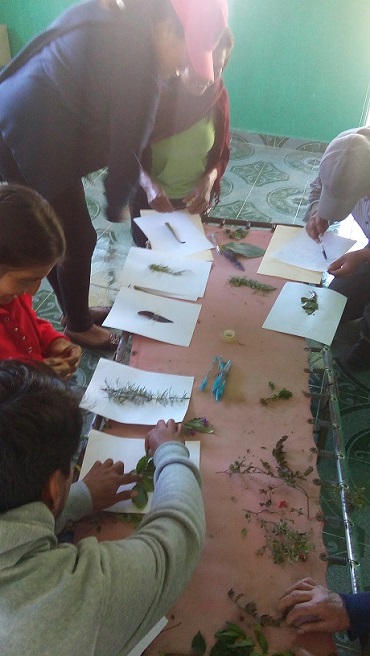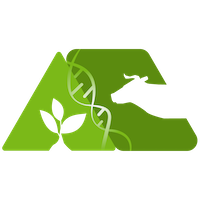Knowledge dialogue
from useful agrobiodiversity towards the construction of medicinal knowledge (Zautla, Mexico)
DOI:
https://doi.org/10.31285/AGRO.26.966Keywords:
community herbarium, knowledge sharing, medicinal plants, working groupsAbstract
The dialogue of knowledge is a horizon for agroecology in political, epistemic, ethical dimensions and gives the possibility of building alternatives to the production of hegemonic knowledge. In addition, it allows us to question the object of knowledge of ethnosciences. The article presented here reconfigures more than 20 years of work experience of the Center for Rural Development Studies (CESDER) with peasant and indigenous community groups in Zautla, Mexico. The methodology arises from the collection and taxonomic determination of plant collections in the area, which serve as a basis for the verification of uses and common names through semi-structured interviews, and in the end, can trigger exchanges and dialogues with community groups through the herbarium specimens with emphasis on medicinal use. The results indicate that the condensation of the material and the symbolic makes life stories, memories, anecdotes, uses, recipes, experiences, and valuations emerge, and achieves the sharing of what is essential for cultural appropriation. For us, the conclusions go beyond the convergence in taxonomic identification and common names since they lead to changes in practices in daily life, generate knowledge from dialogue, and reproduce moments in which coexistence, sharing, life stories related to their experience emerge. The approach to a dialogue of knowledge arises from the constancy of the space being always under construction and the consequent exchange.
Downloads
References
Aguilar A, Camacho J, Chino S, Jácquez P, López E. Herbario de medicina del Instituto Mexicano del Seguro Social: información etnobotánica. México: Instituto Mexicano del Seguro Social; 1994. 159p.
Argueta A, Gómez-Salazar M, Navia J. Conocimiento tradicional, innovación y reapropiación social. Ciudad de México: Siglo XXI; 2012. 292p.
Beaucage P, Marreros A, editors. Aquí somos mexicaneros aunque no hablemos el idioma: identidad y cultura indígenas en Ixtacamaxtitlá, Puebla. México: CESDER; 2018. 50p.
Bourdieu P, Wacquant L. Una invitación a la sociología reflexiva. Ciudad de México: Siglo XXI; 2005. 320p.
CESDER-PRODES. Dignidad y calidad de vida en comunidades campesinas: propuesta para la instalación de un área de desarrollo en 12 comunidades del municipio de Zautla, en la Sierra Norte del estado de Puebla, México. México: Centro de Estudios para el Desarrollo Rural y Promoción y Desarrollo Social A.C.; 1998. 187p.
Fals Borda O. Conocimiento y poder popular, lecciones con campesinos de Nicaragua, México y Colombia. Colombia: Siglo XXI; 1986. 87p.
Gómez LF, Ríos-Osorio L, Eschenhagen ML. Las bases epistemológicas de la agroecología. Agrociencia. 2015;49(6):679-88.
Gutierrez Navarro A. Siendo sujetos en la formación universitaria, la agroecología como pretexto. In: Sandoval Álvarez R. México: Universidad de Guadalajara; 2019. p. 261-86.
Havelock E. La musa aprender a escribir: reflexiones sobre la oralidad y escritura desde la antigüedad hasta el presente. España: Paidos; 1996. 93p.
Henríquez Villanueva NP. El herbario: una fuente de información indispensable. In: Estudios de la agrobiodiversidad en Mesoamérica: aspectos metodológicos. El Salvador: Red Mesoamericana de Recursos Fitogenéticos; 2001. p. 15-22.
Hersch Martínez P, Argueta A, Corona E. Diálogo de saberes: ¿para qué? ¿para quién? Algunas experiencias desde el programa de investigación Actores Sociales de la Flora Medicinal en México, del INAH. In: Argueta Villamar A, Corona E, Hersch P, ed. Saberes colectivos y diálogo de saberes en México. Ciudad de México: UNAM; 2011. p. 173-300.
Hersch Martínez P, González Chévez L. Investigación participativa en etnobotánica: algunos procedimientos coadyuvantes en ella. Dimensión Antropológica. 1996;8:129-53
Huerta Alva MG, Serrano Arroyo I, Comunidad Aguilar MA. Zautla: de la Z a la A: un ejemplo de autogestión de desarrollo social. México: CESDER; 2008. 193p.
INEGI. Cuaderno estadístico Municipal de Zautla. Estado de Puebla: INEGI; 1999. 58p.
Izquierdo Moreno E. Alternativas al desarrollo en zonas rurales de extrema pobreza: la experiencia del Centro de Estudios para el Desarrollo Rural (CESDER) en la Sierra Norte de Puebla [master’s thesis]. México: Instituto Politécnico Nacional; 2010. 262p.
Leff E. Saber ambiental: sustentabilidad, racionalidad, complejidad, poder. Ciudad de México: Siglo XXI; 2002. 414p.
Ludwig D, El-Hani C. Philosophy of Ethnobiology: understanding knowledge integration and its limitations. J Ethnobiol. 2020;40(1):3-20. DOI: https://doi.org/10.2993/0278-0771-40.1.3
Martín-Crespo Blanco MC, Salamanca Castro AB. El muestreo en la investigación cualitativa. Nure investig. 2007;(27):1-4.
Miranda T, de Mello Amorozo M, Govone S, Mota D. The influence of visual stimuli in Ethnobotanical Data Collection using the Listing Task Method. Field Methods. 2007;19(1):76-86. DOI: https://doi.org/10.1177/1525822X06295987
Ramírez Poloche N. La importancia de la tradición oral: el grupo Coyaima-Colombia. Rev Guillermo Ockham. 2012;10(2):129-43.
Rosset P, Altieri M. Agroecología, ciencia y política. Ecuador: SOCLA; 2018. 208p.
Rzedowski GC, Rzedowski J. Flora fanerogámica del Valle de México [Internet]. 2a ed. México: Instituto de Ecología A. C.; 2001 [cited 2022 Mar 07]. 975p. Available from: https://bit.ly/3KmYxyh.
Salcido Serrano R, Sandoval Álvarez R. El problema y el sujeto en la investigación: metodología y epistemología crítica. Guadalajara: Universidad de Guadalajara, Centro Universitario de Ciencias Sociales y Humanidades; 2016. 205p.

Downloads
Published
How to Cite
Issue
Section
License
Copyright (c) 2022 Agrociencia Uruguay

This work is licensed under a Creative Commons Attribution 4.0 International License.
| Article metrics | |
|---|---|
| Abstract views | |
| Galley vies | |
| PDF Views | |
| HTML views | |
| Other views | |

















